Glocalization
HUMAN SIDE OF GLOBALIZATION (3rd edition)
 Foreword by Sir Arthur C. Clarke
Foreword by Sir Arthur C. Clarke
King’s College, London
In Memory of Sir Arthur
For a few days after the devastating Asian Tsunami 2004, the whole world became one big, concerned Global Family. The year 2005 dawned with people everywhere closely following the unfolding tragedy and humanitarian emergency via satellite television and on the web. As the grim images from Aceh, Chennai, Galle, Penang and elsewhere replaced the traditional scenes of New Year celebrations, I realized that it will soon be 60 years since I invented the communications satellite (in Wireless World, October 1945 – I still think it was a good idea).
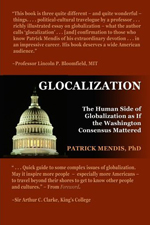 Having thus made my small contribution to accelerate globalization, I remain deeply interested in understanding globalization’s implications and nuances for different cultures and societies. Glocalization: The Human Side of Globalization as If the Washington Consensus Mattered is one man’s attempt to make sense of this increasingly interconnected and interdependent world.
Having thus made my small contribution to accelerate globalization, I remain deeply interested in understanding globalization’s implications and nuances for different cultures and societies. Glocalization: The Human Side of Globalization as If the Washington Consensus Mattered is one man’s attempt to make sense of this increasingly interconnected and interdependent world.
The author, Dr Patrick Mendis, is an American academic and diplomat originally from Sri Lanka – my adopted country for half a century. In fact, we share a lot more than just our passion for Sri Lanka. He and I are both Fellows of the World Academy of Art and Science – I first got to know Patrick when he visited me with his American mentor, Ambassador Harlan Cleveland, who was President of the Academy for several years.
Patrick originally wrote these essays based on his experiences and impressions while being a visiting professor of economics and public policy during the 2004 spring voyage of the Semester at Sea program at the University of Pittsburgh, Pennsylvania. Two decades ago, I had great fun lecturing on board the Semester at Sea program when the ship used to call over at Colombo. (It’s time for the good ship to return!). For many years, I also served on the advisory board of the Institute for Shipboard Education that manages the Semester at Sea.
In these essays, Patrick combines field research, interviews and public policy discussions carried out in over a dozen countries, where the ship called over during its voyage round the world. This book is ample evidence that the author is at home in the United States, Sri Lanka, and in many other lands. His multi-faceted career – working with governmental bodies, universities, volunteer organizations and international institutions – is reflected here as he integrates his Sri Lankan and American values into these essays.
Patrick provides an interdisciplinary analysis to a set of controversial but important global issues. His views on President Fidel Castro are an indication that Patrick would like to see a democratic and open Cuban society. He explores the structured poverty in the favelas of Brazil and racial division on HIV/AIDS in South Africa. He equally questions the traditional values of Africa’s female genital mutilation and raises the broader question: values or virtues? Patrick sees different paths of globalization in India and China.
In Cambodia, he attempts to understand the root causes of the “Asian genocide” that was one of the worst in the violence-ridden twentieth century. Visiting a Nike shoe factory in Vietnam, he links their controversial working and environmental conditions to the U.S. Constitution that was invoked to find collaborative solutions to developing world problems. His cultural analysis – on Confucian values in rapidly westernizing South Korea and the modernization of Buddhist teachings in the rapidly changing Japan – raises a wide range of paradoxical questions of globalization.
These essays make a strong case that that we all have similar human aspirations, even when they are shaped by different cultural, social, and political factors. Globalization is no longer a choice but an imperative for nations. But let’s not despair – by adopting the path of cautious engagement, we can still retain our individuality. As Gandhi famously remarked, we must keep the doors and windows of our house open for cultures of other lands to come in from all directions. We just need to be strong enough not to be blown off our feet.
For the discerning reader, this book provides a quick guide to some complex issues of globalization and global interdependence. May it inspire more people – especially more Americans – to travel beyond their shores to get to know other people and cultures.
 Sir Arthur C. Clarke
Sir Arthur C. Clarke
Fellow – King’s College, London
Colombo, Sri Lanka
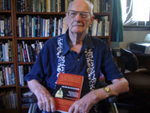
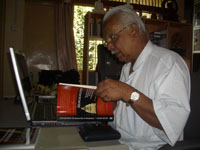
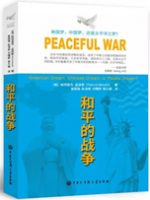
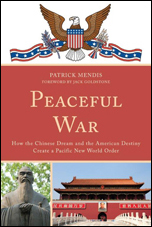 Peaceful War
Peaceful War
 Commercial Providence
Commercial Providence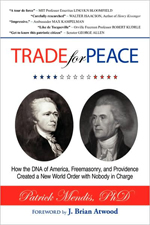 Trade for Peace
Trade for Peace